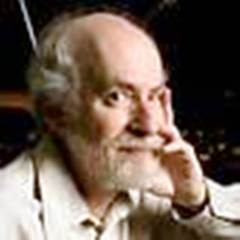|
Back
Spiritual Questions New York
St. Malachy’s–The Actors’ Chapel, 239 West 49th Street
05/09/2016 -
“Journeys in Silence”
Haskell Small: A Journey In Silence: Reflections on “The Book of Hours”
John Tavener: Pratirūpa
Haskell Small (Pianist) 
H. Small (© Courtesy of the Artist)
Two gifted pianist-composers presented their work this weekend, and no pair could be further apart. One inevitably had to contrast Frederic Rzewski’s hammer-and-sickle with Haskell Small’s church-bell and thurible; Rzewski’s tough-as-nails earthiness with Small’s brooding on our inner-soul; Rzewski’s hour-long variations on the Chilean revolutionary anthem with Small’s 40-minute roaming over the Medieval Catholic Book of the Hours; Rzewski’s venue on a barge moored in the once condom-filled, grease-covered East River, Small’s venue in a church decorated with dainty pastel angels.
And if this reviewer was still both intoxicated and elated with Ursula Oppens performance of Rzewski’s Variations On “The People Are United” last Friday, without giving the requisite devotion to Haskell Small’s devotional “journey”, well, so be it.
God, who is occupied with giving cancer to babies, will certainly forgive li’ ol’ me.
Yet it is difficult to forgive Haskell Small for giving up his prodigious piano technique, which has been heard here before, for his poetic meditation on the medieval Catholic devotional missal. When Umberto Eco used the Book of the Hours as the structure for The Name of the Rose, it was meant for a stabbing irony, a symbolic laurel and poison in tandem. When Haskell Small devoted the first half of his recital to the work, it seemed more a droopy meditation than the original call for prayerful guidance.
Mind you, he is a crystal-clear highly gifted pianist. Even with the over-resonating church setting, one could hear each note, the few measures of cadenzas were played with transparent delicacy.
Yet Mr. Small’s compositional asset was equally a liability. The nine sections (Vigils, Terce, Sext, Vespers etc) were played without a break, so one wasn’t quite certain where the bell resonances and the hymns and the jolly sections referred. And while I am certain the music was inspired by Mr. Small’s evident spiritual nature, the styles–which ranged from Satie’s Rose And The Cross meditations to Pictures At An Exhibition tumults–never quite hung together.
I wouldn’t say these were meant for Tantric meditation, yet one feels that Mr. Small might have wished for contemplation more than appreciation. Hopefully, for the mainly elderly audience in the church, this could have been true.
The second half was also a single work, this by the unquestionably talented John Tavener. Like Olivier Messiaen, Tavener’s inspirations were eclectic, and both composers were fascinated with Hindu music and spiritualism.
Tavener’s Pratirūpa (the Sanskrit for “Reflection”) was, like Mr. Small’s work, 35 uninterrupted minutes. But John Tavener never roamed or meditated. Also like Messiaen, he took chunks of music, repeated them, transformed them, incarnated and reincarnated them, so we had the artistic (rather than religious) anticipation of the work itself.
In simple terms. Pratirūpa’s “chunks” consisted of a) a simple vaguely raga-ish line, repeated with simple echoes; b) a three-measure phrase in the major, repeated in the minor (and the opposite); c) a childishly simple hymn with one note always out of place (my own favorite); and d) a sudden frenzy of piano-banging from top to bottom with about 10 seconds of deafening fffff notes on the piano extremes.
Whatever John Tavener meant this so signify, I saw it as the moment in the Bhagavad Gita when Krishna reveals himself in his Godly Fullness, and Arjuna backs away with fright.
Tavener perhaps meant something entirely different. But one was not looking for spiritual meaning in Pratirūpa. One was listening to a marvelous piece of music which surprised, jolted and shook up not only ourselves but the pallid angels painted on the walls.
At the end of Pratirūpa Mr. Small blessed us with a gorgeous reading of the C Major prelude from Well-Tempered Clavier. Bach’s single minute had more elegance, grace and spiritual wonder than all the notes with which it had been preceded.
Harry Rolnick
|